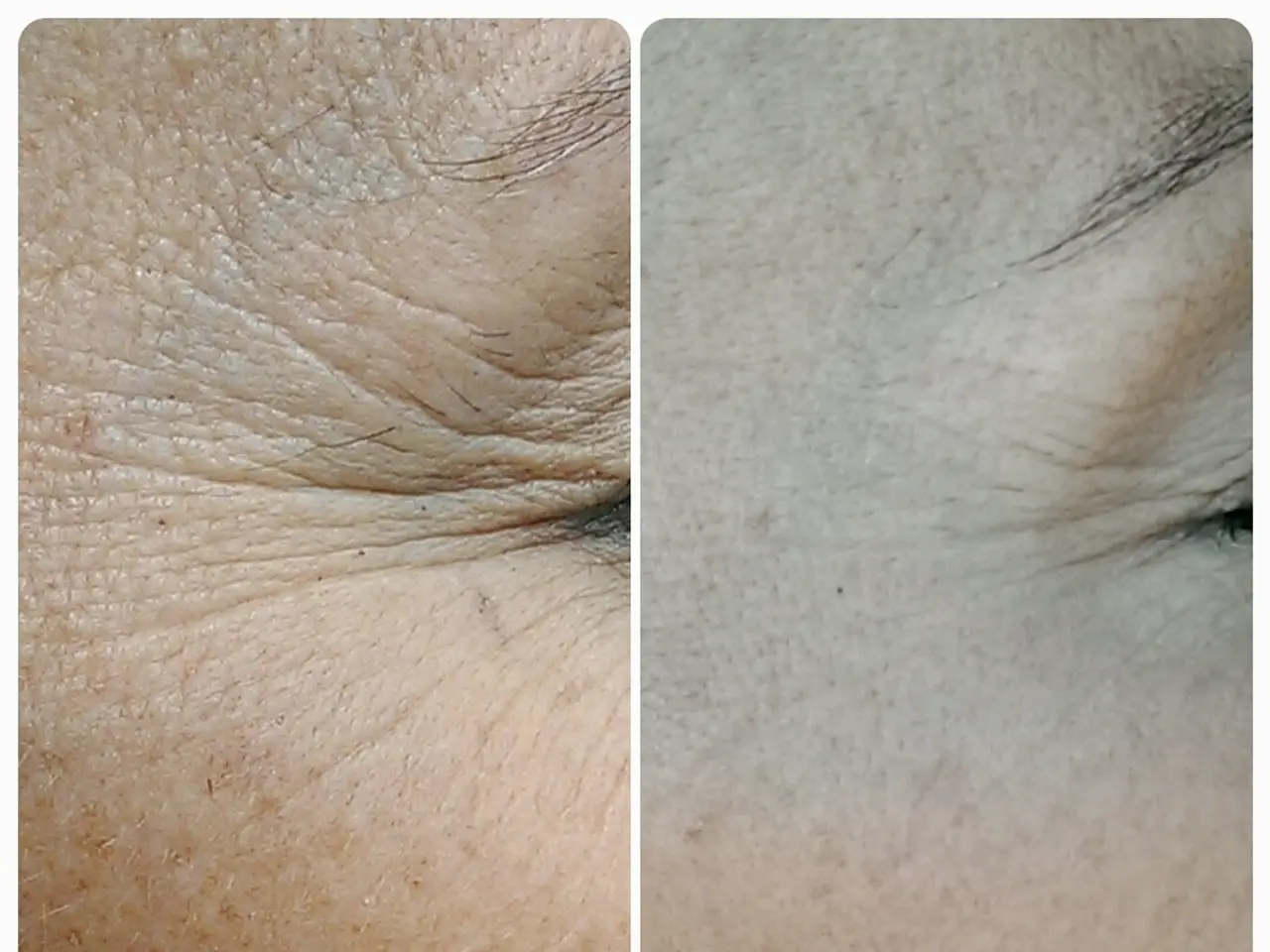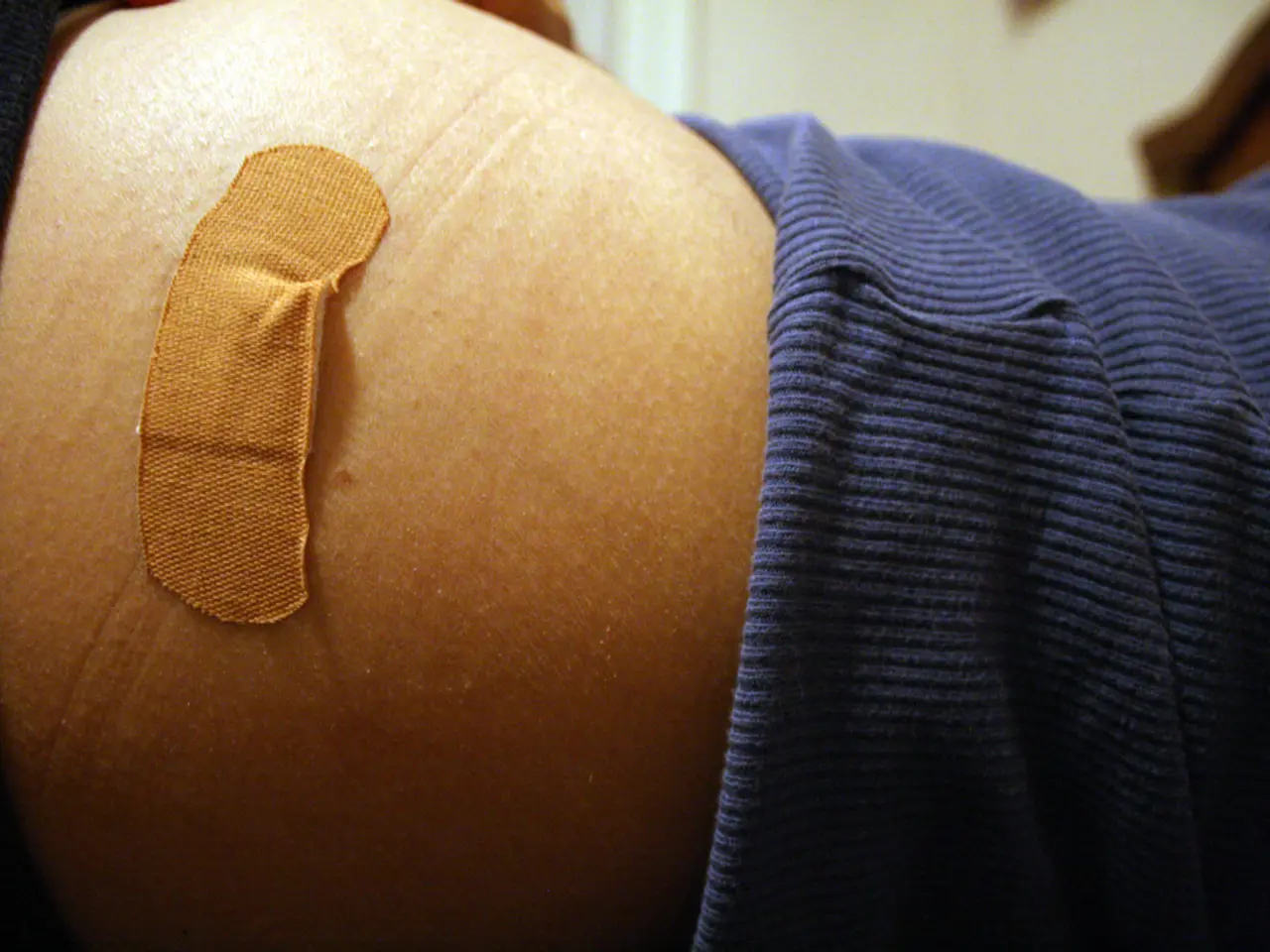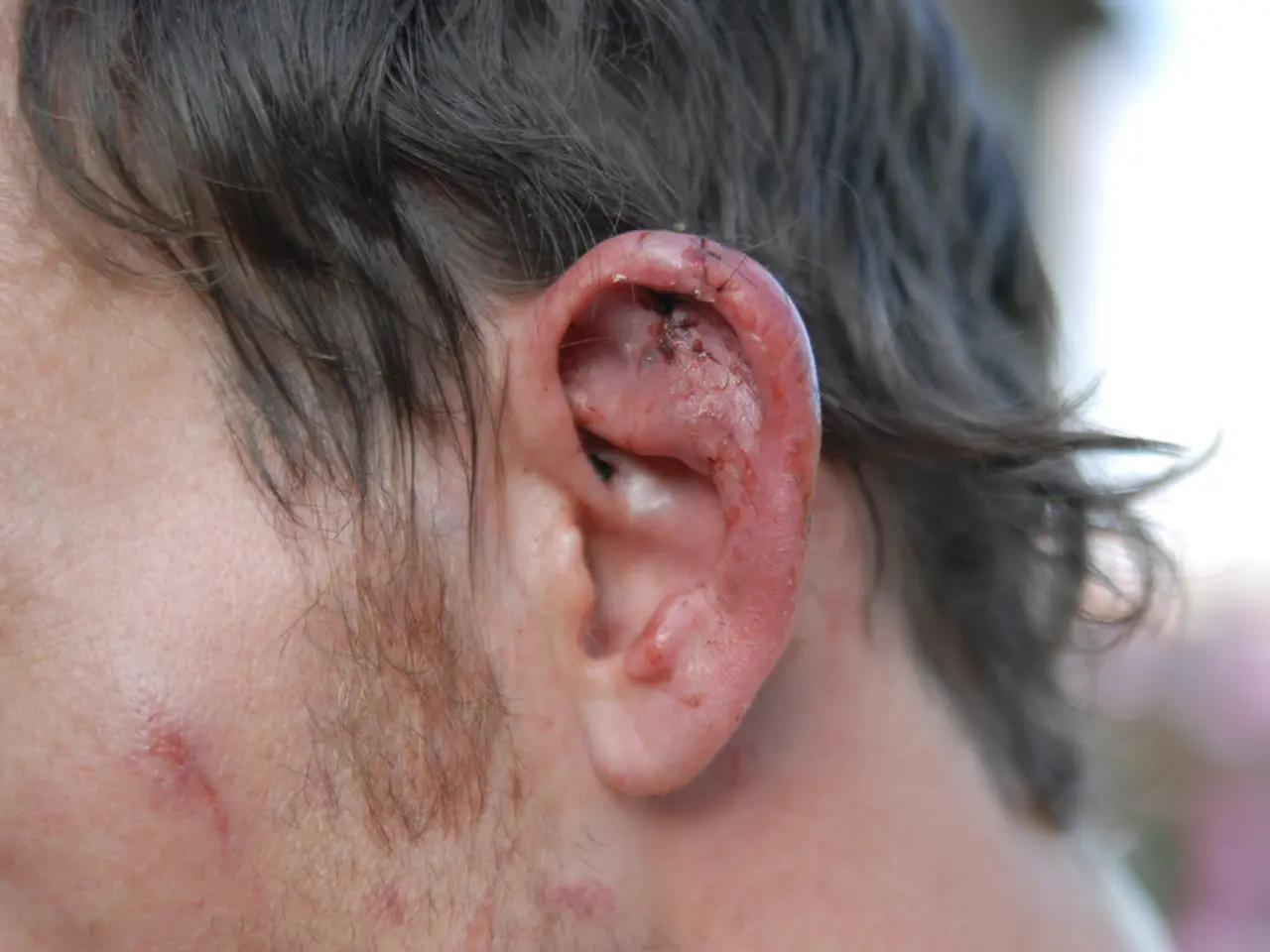Surgical removal of breast tissue while preserving skin: Advantages and choices available
In the world of breast cancer treatment, a skin-sparing mastectomy (SSM) is gaining popularity due to its potential for a more natural appearance during reconstruction and its psychological benefits. This surgical procedure, which removes breast tissue and glands while preserving the skin in the region of the breast, is increasingly being recognised as an important option for those affected by breast cancer.
The outlook for people with breast cancer depends on the stage and spread of the cancer, with a 5-year relative survival rate for women with breast cancer in the U.S. being 90%. For those choosing SSM, the primary benefit lies in the potential for a more natural appearance of the reconstructed breast. However, it's essential to note that whether insurance will cover an SSM to the same level as a total mastectomy depends on the specific insurance policy.
Several studies and expert recommendations highlight that immediate breast reconstruction following mastectomy, whether skin-sparing or total, can provide significant psychological and quality of life (QoL) benefits. These benefits include improved self-confidence, body image, and emotional well-being. The benefits of immediate reconstruction after SSM are well-established, and delaying reconstruction may negatively impact psychological status.
Nipple-sparing mastectomy (NSM), a form of skin-sparing surgery that preserves the nipple-areola complex, is increasingly preferred because it offers better aesthetic outcomes that correlate with positive psychological effects and QoL benefits compared to SSM. Patients undergoing NSM tend to have better satisfaction related to breast appearance and associated emotional outcomes, which is a factor influencing patient preference.
Regarding insurance coverage, while explicit direct comparisons of insurance policies between skin-sparing and total mastectomy in terms of psychological benefits are not detailed in the available literature, the consensus in clinical guidelines and research indicates that:
- Reconstruction after either SSM or total mastectomy is recognised as important for psychological recovery and quality of life, and insurance policies generally cover reconstruction procedures equally to support these outcomes. - Coverage for reconstruction immediately following mastectomy (skin-sparing or total) is supported due to the well-documented psychological benefits and is often mandated by laws like the Women's Health and Cancer Rights Act in the U.S. - Delays in reconstruction are discouraged due to potential adverse psychological effects.
In summary, insurance coverage typically does not differ significantly between skin-sparing and total mastectomy in terms of psychological benefit support. Both types are considered medically and psychologically important, and reconstruction coverage is recommended to be available for both to optimise patient outcomes. The specific preference for NSM when feasible is based on superior psychological and aesthetic outcomes, but this does not usually create disparity in insurance coverage itself.
It is advisable to consult directly with providers or experts in medical billing related to breast cancer surgery and reconstruction for details on specific insurance plans or policies. Reconstruction options after an SSM include immediate and delayed immediate reconstruction. Other mastectomy options include simple mastectomy, modified radical mastectomy, nipple sparing mastectomy, scar sparing mastectomy, risk reducing mastectomy, and mastectomy with ovarian removal.
The major cost for reconstruction after an SSM is for the time and effort of the plastic surgeon. People having other types of mastectomy may choose to postpone reconstruction, but this is not possible following an SSM. A skin sparing mastectomy may help improve symptoms of depression that can sometimes accompany breast cancer and mastectomy due to the ability to preserve a part of the body.
In a skin sparing mastectomy, the surgeon removes the nipple and its surrounding skin, as well as the original biopsy scar. Delayed immediate reconstruction involves placing a tissue expander under the skin to temporarily preserve space, which can be removed during reconstruction. This allows for other cancer treatments, such as radiation therapy, before reconstruction. In some cases, a surgeon may reconstruct the breast at the same time as performing the mastectomy, while in others, they may insert a tissue expander to preserve space in the breast for later reconstruction.
It's crucial to remember that there is a risk of cancer returning or a possible need for further treatment after a mastectomy. Therefore, it's essential to discuss all options thoroughly with a surgeon to decide which procedure is most suitable for each individual. Ultimately, the goal is to provide the best possible outcome for those affected by breast cancer, both physically and psychologically.
- Seekers of breast cancer treatment may consider breastcosmeticsurgery like a skin-sparing mastectomy for its potential to offer a more natural appearance during reconstruction and psychological benefits.
- For those opting for a skin-sparing mastectomy, a person's mental health can significantly improve with the primary benefit being a more positive self-image and emotional well-being.
- Women's health, including mental health, is crucial in the treatment of breast cancer, and insurance policies generally provide coverage for breastcosmeticsurgery to support psychological recovery and quality of life.
- Science and medical-conditions, such as breast cancer, necessitate a thorough understanding of the various breastcosmeticsurgery options, including nipple-sparing mastectomy, to make informed decisions about treatment and reconstruction.
- When making decisions about breast cancer treatment and reconstruction, every individual must discuss their options with a medical professional to determine the best course of action that caters to their specific health-and-wellness needs.
- In cases of breast cancer, it's essential to be aware that a person may face health-and-wellness challenges like cancer return or subsequent treatments, therefore open communication with a healthcare provider is crucial in making informed decisions about the most suitable treatment, breastcosmeticsurgery, and reconstruction options.




